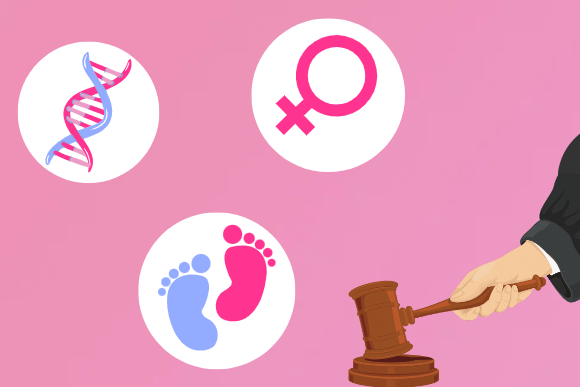The US Prison System Must Change
Opinion
Desperate Housewives star Felicity Huffman forked over $15,000 to have her daughter’s SAT scores manipulated by Rick Singer, the mastermind behind a huge college admissions scandal consisting of over 50 wealthy people and celebrities. Accompanying Huffman were six other parents eager to break the law: Gregory and Marcia Abbott, Agustin Heneeus, Gordon Caplan, Stephen Semprevivo, and Devin Sloane, most of who had paid much more for their children than Huffman did for her daughter. Rightfully so, the other parents got much heftier punishments than Huffman, who slipped away with just 14 days in prison, $30,000 in fines, and 250 hours of community service.
As a result of this case and Huffman’s sentence, which many have criticized as too harsh, our prison system’s tendencies for incarceration have risen back into the spotlight. Jail time has become an automatic response to any offense, no matter the severity. Between 1980 and 2015, the number of people imprisoned in the U.S. increased from about 500,000 to over 2.2 million.
However, prison is brutal and can damage people both physically and mentally. Having a criminal record can reduce the likelihood of a job offer or an interview by almost 50 percent. Moreover, at least half of all prisoners suffer from some sort of mental health concern and between 10 and 25 percent of U.S. prisoners suffer from serious mental illnesses. The harms of imprisonment are endless, especially considering the horrible conditions inside the prisons.
For smaller and nonaggressive offenses, like Huffman’s, this struggle is pointless. Prison is supposed to rehabilitate criminals and help them understand what it means to be a law-abiding citizen. However, many believe that prison is more about retribution. Severely punishing those who have committed horrible crimes can be justifiable, but severely punishing those who have committed small, petty crimes is a waste of our resources and a detriment to the people. Even worse, this is only a small part of how messed up our prison system has become.
Another huge problem with the prison system in America is wrongful incarceration. Since 1989, there have been 1,761 exonerations based on new evidence. The years these people lost to prison because of wrongful convictions totaled to 18,350 years. Unjustified convictions are caused by many underlying factors, from misidentifying witnesses to improper forensics, and countless individuals have spent years of their lives behind bars because of these appalling issues.
Racial targeting is also a massive issue in our prison system. In 2015, African Americans and Hispanics made up 56 percent of all incarcerated people, even though they only made up 32 percent of the American population. There has been much racial bias over the years, leading to the substantial differences between races in imprisonment. African Americans are also five times more likely to be incarcerated when compared to whites, while the rate of imprisonment for African American women is two times that of white women. Despite this racial prejudice flagrantly hurting minorities and being shown on all sorts of media forms every day, it still has not been dealt with properly yet.
Solving all of these issues will take a lot of time, and the complete solution won’t be achieved anytime soon. However, starting now would mean fewer people getting convicted wrongfully, fewer people getting charged with useless, life-damaging sentences, and less racial prejudice. Organizations have already been created to address these problems plaguing our prison system, and many of them have methods for people to get involved. The Innocence Project works tirelessly to help get the wrongfully incarcerated exonerated. Students can help make a difference with The Innocence Project by signing up to join their mission towards criminal justice reform, contributing to their efforts, or joining a local group. The Marshall Project, a nonprofit, works to report on criminal justice through a diverse standpoint and combat racial prejudice. The project accepts donations and offers a summer internship for student journalists to get involved. The Sentencing Project is also a great way to get involved, as it covers all of these issues and more. There are several opportunities we can all take to get us one step closer to proper criminal justice reform.
Another major factor in solving these problems is raising awareness for them. Holding rallies in our own localities or writing essays to our local newspapers can have tremendous impacts on the cause. We need to help remove the barriers that make it so hard for citizens with criminal records to adapt to life outside of prison. Furthermore, to create a larger and more widespread change, getting in contact with politicians is crucial. We need to tell them to cut back on excessively long sentences that suck up all of the money and resources. We need to tell them to improve the horrible conditions prisoners live in. We need to tell them to work towards reducing racial disparity in our prison systems.
Most criminals aren’t demons trying to make the world a terrible place for everyone to live in. Most are simply misguided people who need to learn how to follow the law. Having a prison system that fosters the idea of locking them up in cages, taking away all of their rights, and treating them like swine betrays the principles of freedom and respect that this country was built on. Rather than forcing Huffman into a cell, donating her fine to a student in need of financial aid to attend a top-level university would make a lot more sense. Redemption and forgiveness are better than confinement and ignorance.

This is my third year on student press and my fifth year of taking journalism. I love to write, read, eat, sleep, and procrastinate. :) I’m in DECA,...







